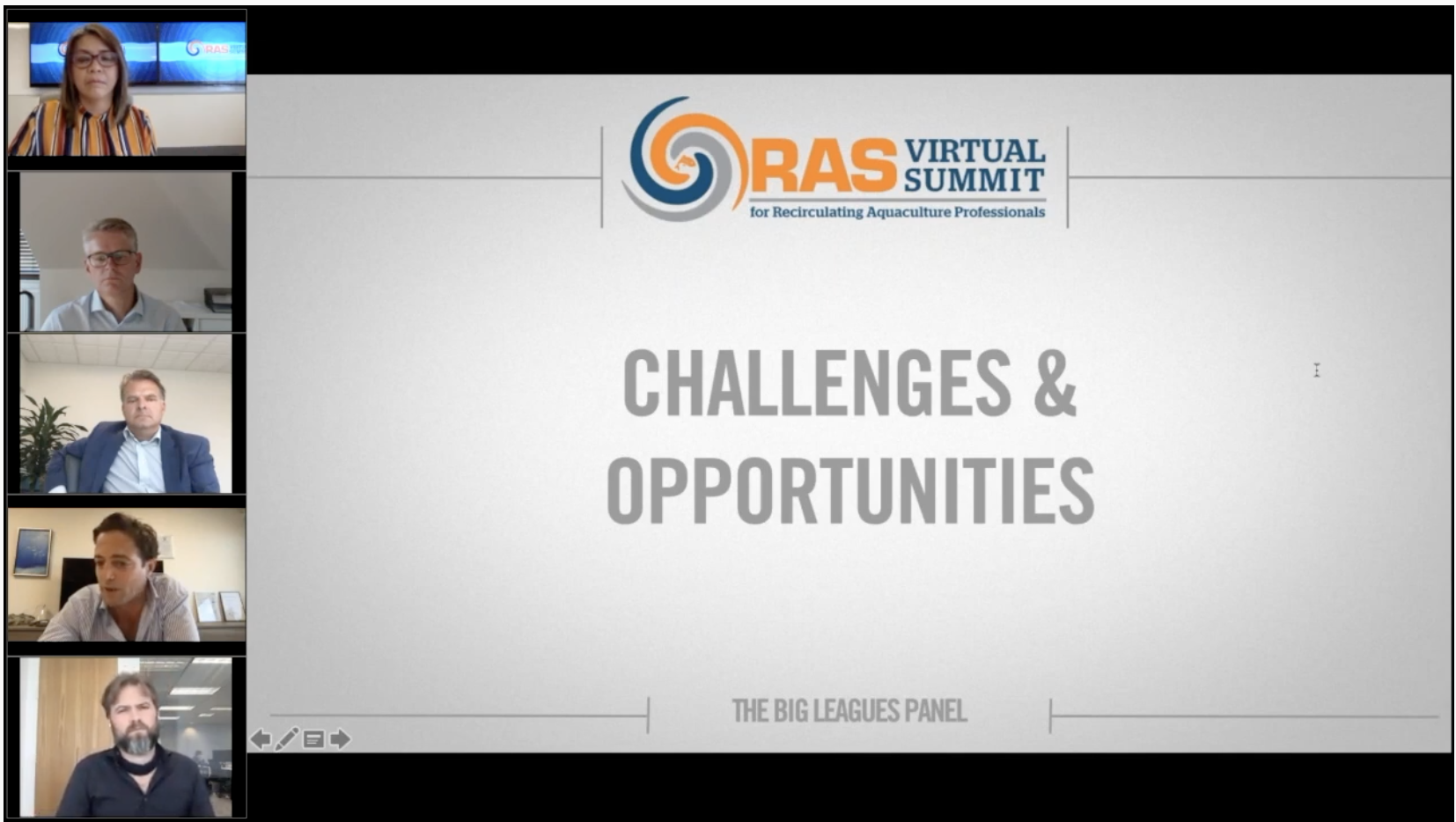
Features
Management
Sustainability
Technology
Pandemic a lesson on agility for big RAS players
September 22, 2020 By Mari-Len De Guzman

If there is one thing that the global pandemic has taught the big RAS producers, it’s that having the ability to watch market trends and shift strategies to adapt and take advantage of those changing trends.
This was a key insight from the big four RAS players participating in a panel discussion at the recent RAS Virtual Summit. The speakers – Erik Heim, president of Nordic Aquafarms, Martin Fothergill, board director at Pure Salmon, and Ohad Maiman, founder and CEO of The Kingfish Company, Thue Holm, chief technology officer and co-founder at Atlantic Sapphire – shared their insights on how COVID-19 has changed the trajectory of this emerging RAS sector.
Channel diversification has been one of the key learnings from COVID-19, and shifted priorities for producers.
“When we started the year we intended to focus more on restaurants and slowly develop retail, but (with COVID-19) we had to refocus into retail as restaurants shut down,” said Maiman. The Kingfish Company is based in The Netherlands and produces Dutch Yellowtail. The company has unveiled its expansion plans to build a RAS production facility in the U.S.
The increasing trend in home cooking – also a consequence of COVID-19 lockdowns – is also providing new market opportunities for the aquaculture producers.
Pure Salmon’s Fothergill said his company plans to focus on this as well as on the shift in consumer behaviour toward online purchasing to see how the opportunity can be exploited. “Changes that we were expecting to see over three to four years happened in three to four months with that huge shift online.”
The pandemic also highlighted the importance of local food security, said Heim. Nordic Aquafarms recently launched a public information campaign about land-based aquaculture and sustainable food production. During the panel, Heim stressed the importance of informing consumers and correcting the misinformation.
“As we all take turns on (providing public education), we all will benefit from raising awareness around where this industry is going, given the great potential in the U.S. in the years to come,” Heim said.
Fish welfare was also top of mind among attendees of the RAS Virtual Summit, highlighting the importance of ensuring that the health and wellness of fish in land-based closed containment systems is an important consideration in technology design and operations.
“Fish welfare is something that we have been looking at for a lot of years in looking at the fish,” said Atlantic Sapphire’s Holm, explaining that the key is having good water parameters.
“As long as you can keep good CO2 and good water exchange at the tank with a lot of flow and the fish have good swimming speeds, have low ammonia, low CO2, good oxygen in the tanks, few particles, few bacteria, clear water then there is actually no problem for the salmon to be in those densities,” Holm said, adding that the fish they’ve harvest show no sign of stress and have “beautiful bodies.”
Atlantic Sapphire is expected to make its first full commercial harvest this fall from its Bluehouse RAS facility in Florida. The Bluehouse facility itself is in the final stages of construction and is expected to be completed by end of the year, according to Sapphire’s recent reporting.
Watch the full recording of “The big leagues: RAS players ramp up large scale projects” below:
Print this page